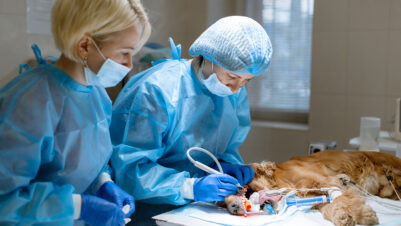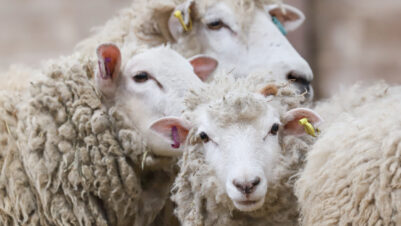A new study has revealed the factors associated with anaesthetic complications in healthy cats undergoing neutering procedures.
The findings highlight the risks associated with feline anaesthesia and suggest that practices should develop comprehensive monitoring protocols tailored to each patient based on their individual characteristics.
Anaesthetic complications are unwanted side effects that can occur during or after a procedure. Several studies have looked at anaesthetic-related deaths in cats, but there has been little research on the factors which may increase the likelihood of a complication and hence where to target monitoring.
The Perioperative anaesthetic complications in healthy cats undergoing anaesthesia for neutering in first opinion practice study analysed the medical records of 1,019 cats who were anaesthetised for a neutering surgery between December 2017 and February 2021. A variety of data was analysed, including the use of pre-operative medication, anaesthetic protocols and monitoring, and any additional relevant events.
Anaesthetic complications were documented in 53.4 percent of the cats in the study. The most common issues were hypotension (low blood pressure), bradycardia (slow heart rate), and hypothermia (low body temperature). Less common complications included hypocapnia (low blood CO2 levels), hypercapnia (high blood CO2 levels), and tachycardia (increased heart rate).
The findings suggest that lower body weight is associated with an increased risk of hypothermia and hypotension, while higher body weight is linked to a higher risk of bradycardia.
Pre-anaesthetic medication significantly affected the incidence of complications, with higher cases of hypotension in cats receiving acepromazine and higher cases of bradycardia in cats receiving medetomidine.
Most anaesthetic durations were short, but in 41 cases were longer than 95 minutes. A longer duration of anaesthesia was linked to increased cases of hypothermia, bradycardia, and hypotension overall.
Jenny Brown, lead author of the study, stated, “Our findings reveal that anaesthetic complications are common, even in healthy cats. This study provides valuable insights that can help veterinary professionals to identify high-risk patients and tailor their anaesthetic monitoring to improve the overall welfare of our feline patients.”
The study was conducted by Jenny Brown, Clinical Director of the Advanced Clinical Services Network at CVS Group, and Pamela Murison, Professor of Veterinary Anaesthesia at University of Glasgow. The full paper is published in the Journal of Feline Medicine and Surgery and is available to read online here.






